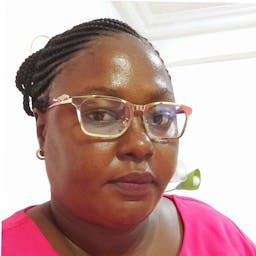Cameroon: Heading towards a Genocide
May 28, 2019
Story
Could this be an impending genocide, come October 1 in Cameroon?
It is 3:15am on Friday morning, yet I can't sleep. Fellow Cameroonians cannot sleep either. The clocks are ticking, and hearts are pounding, sleep can never be an option. Families afar are worried, friends are calling; asking me to take my family out of Bamenda before October 1 2017. My parents in the village are shouting \"Nakinti, bring everyone home, bring everyone to the village before October 1.\" My blood pressure is rising, my thoughts are wondering. To say the least, I am totally confused.
Anglophone Cameroonians, who have long been fed up of with the marginalization thrown at them over the years started protesting against the government in November last year. What started as a Lawyers' and teachers' strike has deteriorated into a full blown socio-political unrest that has left so many dead, wounded, hospitalized, displaced and angered. These protests led to a three months shut down of the internet from January 2017. Today, mobilizations are going on, and English speaking Cameroonians are set to hit the streets to celebrate their inpendence on October 1 -- A day they believe is their true independence from the British rule. As the preparations to hit the streets and hoist a Southern Cameroon flag reaches final, the military too are prepared to unleash a crack down on protesters.
In Bamenda, where I currently am, tensions are high. Mouths are talking. People are relocating to far off villages from the main town. The markets are full -- people are stocking their houses with food. The bakery shelves are empty -- people are buying the last bread on the counters to stock their homes. Gas plates and gas bottles are selling more than ever before -- people are getting ready to remain indoors and cook indoors if the worse happens. Main doors of family homes are being changed from wood doors to metal doors -- families think they should protect their family from door breaks from the military in case of any raid. The stakes are high, the towns are highly militarized, everyone is practically feeling unsafe.
I am still to catch sleep, and yet to make a final decision on how to leave town with family. My house is made up of 3 children under 6 years old, 3 between the ages of 14 and 16, and two adults. You see, moving my family from Bamenda to Bai Kuke (over 400km) was not going to be a 2 minutes decision. As I finalize decision to leave, a communique from the top administrator of the South West Region of Cameroon pops up on facebook -- An indirect state of Emergency has been declared. Yes, no movement of people, no inter-urban travels, no gatherings of more than 4 people, no opening of bars or business places, and more. No nothing from today Friday 29th September 2019 to Tuesday 3rd October 2017. I am perplexed, my travel plans have beet thwarted. My family will stay, stay in the middle of all the insecurity that awaits us.
Just now, I can see an official document from the UN, asking the government of Cameroon to engage in meaningful dialogue and for our country to preserve its territorial integrity, but Southern Cameroonian protest organizers and protesters say \"enough is enough, it is either independence or nothing.\" Our government too, has made it categorically clear, that Cameroon is \"one and indivisible.\" They consider everyone who will go to the streets in Southern Cameroons come October 1 as a terrorist and they will treat that person as such.
The media too is hot helping matters; some francophone journalists have dumped their journalism ethics and they openly refer to anglophone Cameroonians as terrorists who should be dealt with. Some top administrators refer to us as \"dogs.\" All this is only fueling hate and demonstrations, leading to insecurity, protests, counter attacks and police brutality and break-ins. It has stopped to be a fight against the government -- it has become a fight between francophone majority and anglophone minority.
We don't need a genocoide in our country. The images of Rwanda when I visited the Genocide Memorial Center of Kigali in 2013 are fresh in my memory. I remembered I cried endlessly as I looked at the wall pictures and screen messages in the Memorial Center. I could feel the pain of that genocide, 19 years after, in a room. What more if it happens in my own very eyes.
In the heat of all these tension, if you ask me what I wish for, I would say I call for \"meaningful dialogue and Peace.\" Peace my people, peace!




